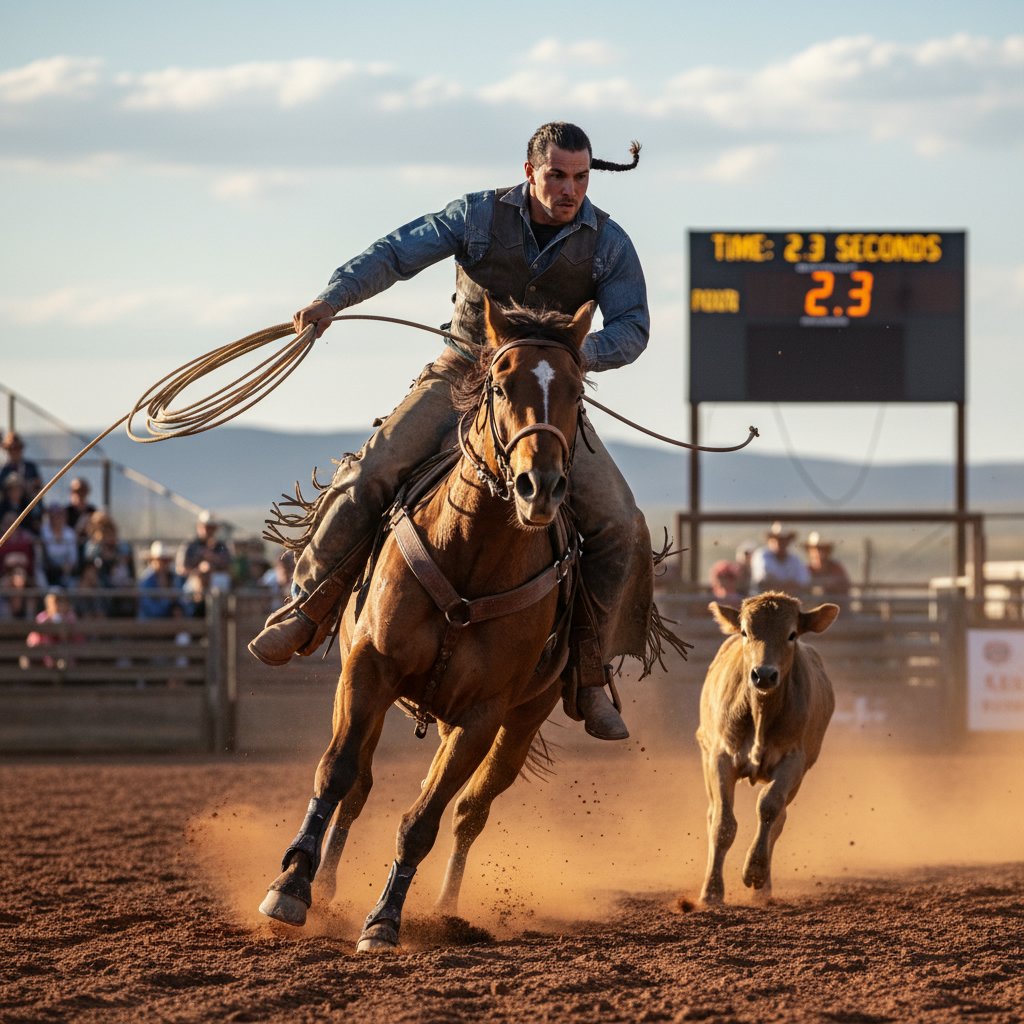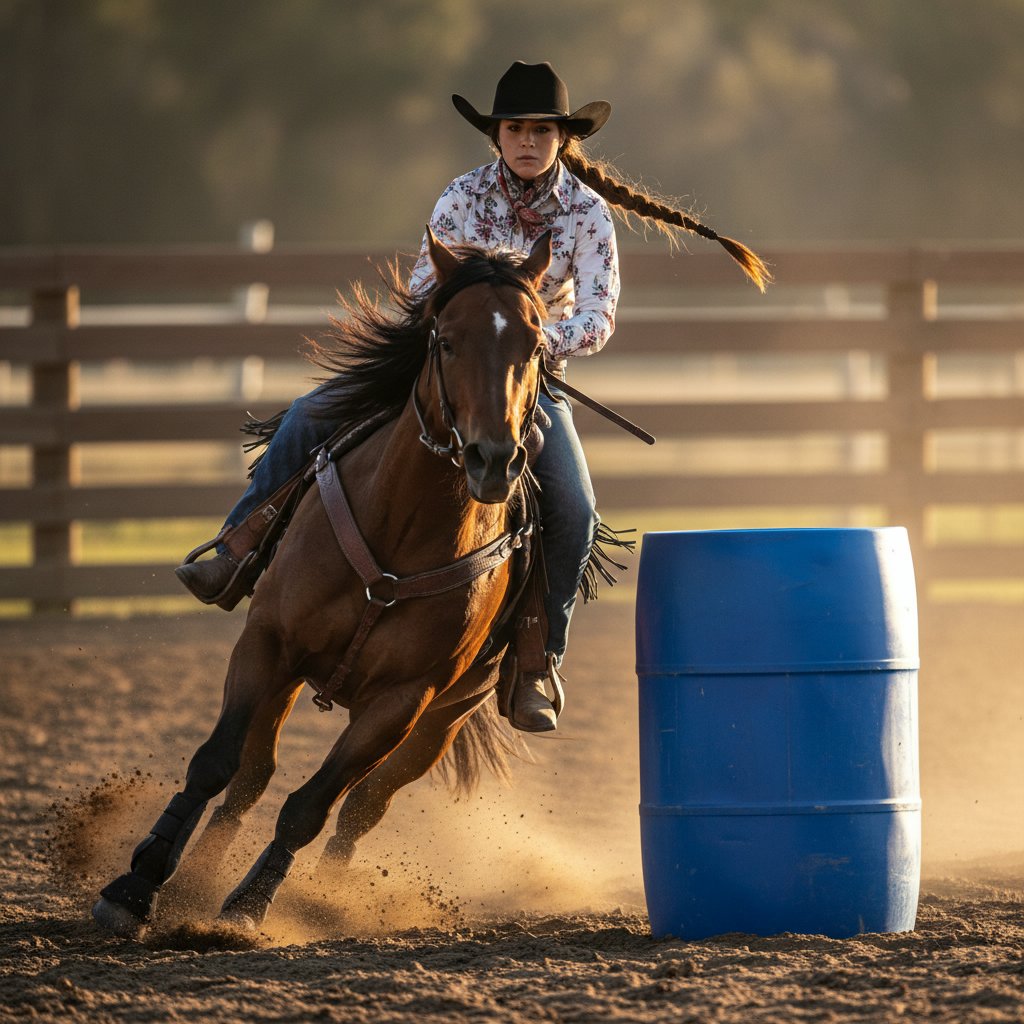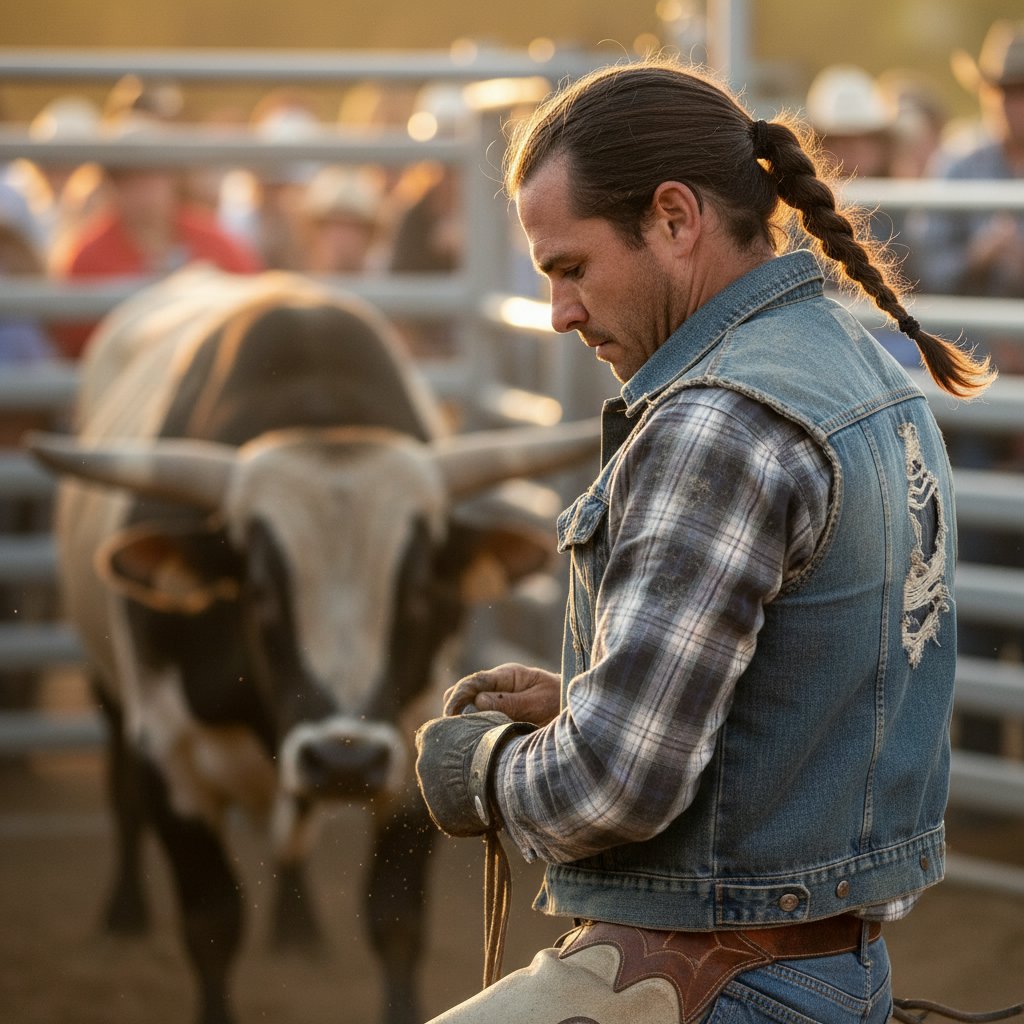Natural-Looking Highlights: A Pro's Guide to a Sun-Kissed Glow
Your Ultimate Guide to Achieving a Flawless, Sun-Kissed Glow
There's an undeniable allure to hair that looks as if it's been naturally lightened by the summer sun. It’s a look that whispers effortless beauty rather than shouts for attention. This coveted, sun-kissed glow is the result of expertly placed, natural-looking highlights that add dimension, brightness, and life to your hair without obvious stripes or harsh lines. Gone are the days of uniform, chunky highlights; today's modern hair color is all about subtlety, artistry, and a seamless blend that grows out gracefully.
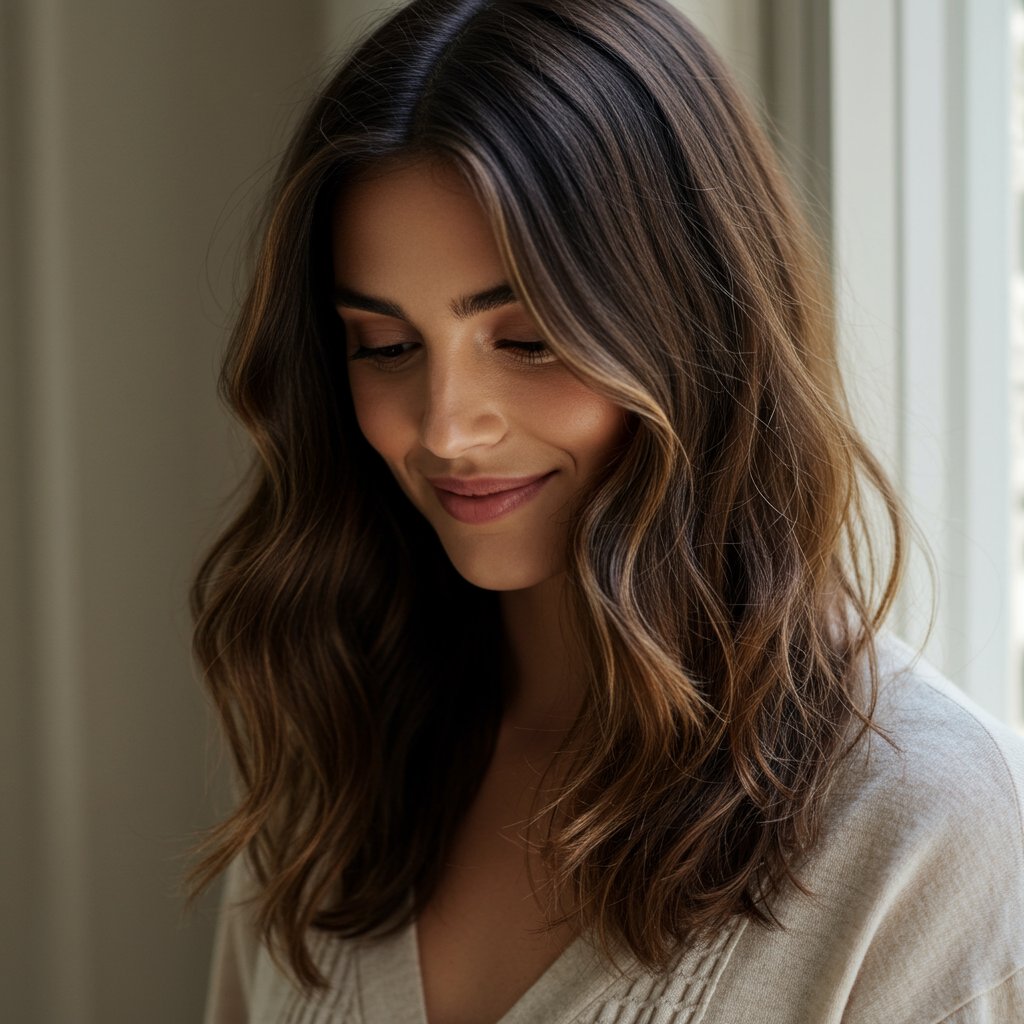
Achieving this look, however, is more of an art form than a simple chemical process. It requires a deep understanding of hair texture, growth patterns, and color theory. A skilled colorist uses a variety of advanced techniques to mimic the way sunlight naturally interacts with hair, creating a multi-tonal, radiant effect that is completely customized to you. This guide will explore the most popular and effective techniques for achieving those perfect natural-looking highlights, from the painterly strokes of balayage to the delicate touch of babylights, helping you understand what to ask for at your next salon visit.
The Philosophy Behind 'Natural-Looking' Hair Color
The movement towards natural-looking hair color is a reflection of a broader trend in beauty that prioritizes authenticity and enhancement over transformation. The goal is to look like the best version of yourself, and your hair color is a major part of that. Natural-looking highlights are designed to replicate the subtle color variations found in hair that has never been colored, like that of a child who has spent a summer playing outdoors. This effect is achieved through strategic placement, avoiding a uniform pattern and instead focusing on where the sun would naturally hit: around the face, on the mid-lengths, and towards the ends.
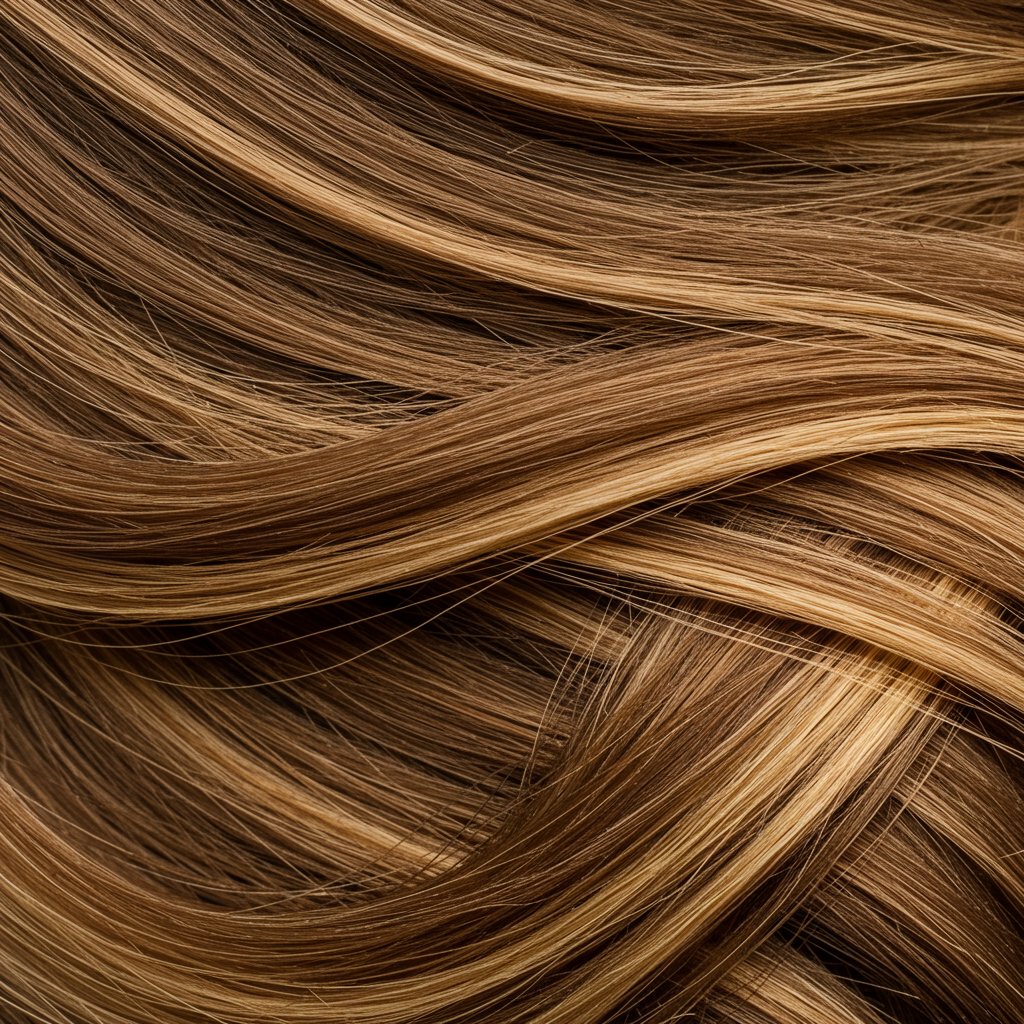
This approach differs fundamentally from traditional highlighting methods. Instead of creating a repetitive, symmetrical pattern from root to tip, a colorist employing modern techniques thinks like a painter. They consider the canvas—your hair's cut, texture, and natural color—and strategically apply lightener to create depth and movement. The result is a soft, dimensional color that looks lived-in from the moment you leave the salon. This not only appears more sophisticated and modern but also offers the significant advantage of a much softer, less noticeable grow-out, extending the time between salon appointments.
Balayage: The Art of Hand-Painted Highlights
Balayage, a French word meaning 'to sweep' or 'to paint,' is perhaps the most well-known technique for creating natural-looking highlights. It involves a freehand painting method where the colorist sweeps lightener directly onto the surface of the hair. Unlike traditional foiling, which saturates entire sections of hair, balayage creates a soft, graduated lightness towards the ends. This technique allows for incredible precision and a highly customized result, as the stylist can place the highlights exactly where they will best complement your haircut and facial features.
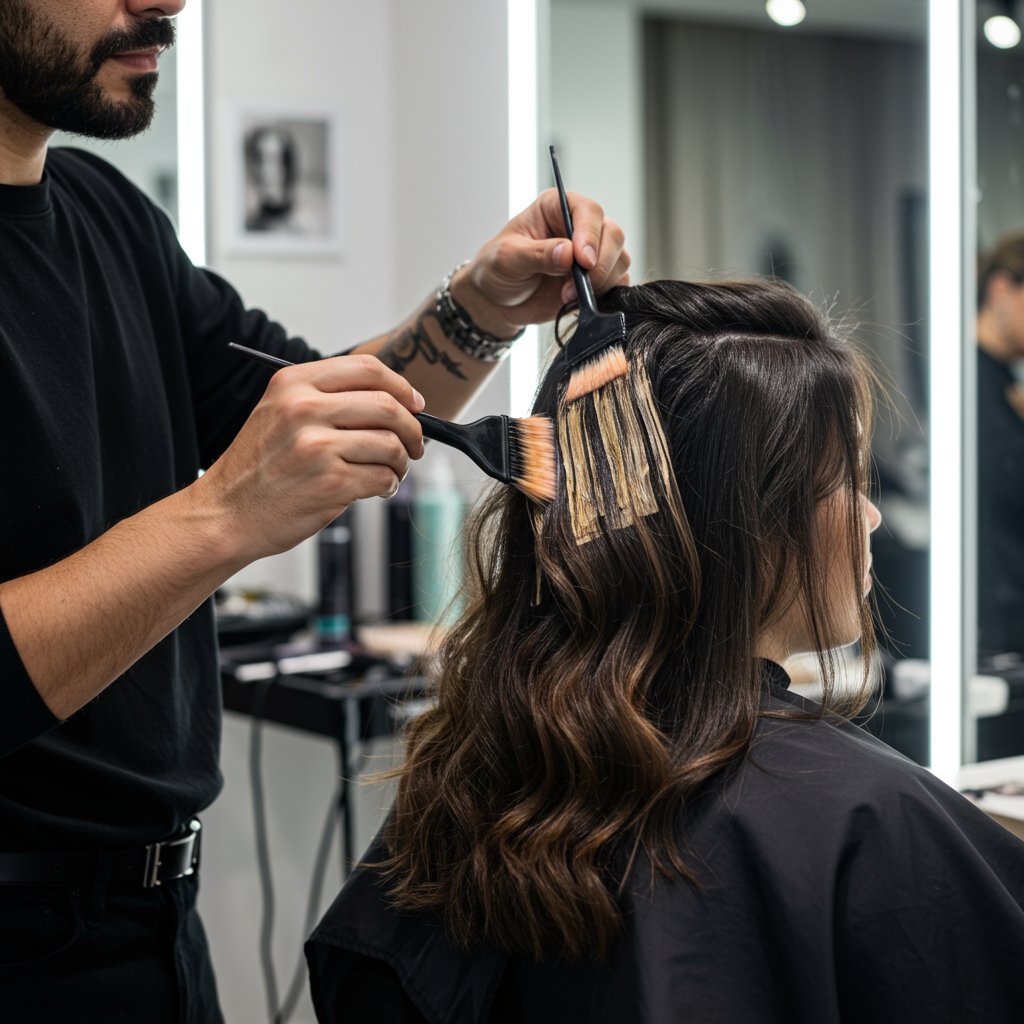
Why Choose Balayage?
The beauty of balayage lies in its seamless blend. Because the lightener is applied more heavily on the mid-lengths and ends and feathered lightly towards the root, there is no harsh line of demarcation as the hair grows out. This creates the ultimate low-maintenance color, often allowing clients to go three to six months between touch-up appointments. Balayage is incredibly versatile and works on a variety of hair lengths and colors, from long, flowing brunette locks that need a touch of caramel brightness to a blonde bob seeking some sun-kissed dimension. The result is a soft, organic look that is both timeless and effortlessly chic.
Babylights: The Ultimate in Subtle Dimension
If balayage is the artist's freehand stroke, babylights are the fine-tipped pen work. This technique involves applying color to extremely fine, delicate sections of hair, mimicking the subtle, multi-dimensional color seen on children's hair. Babylights are created using traditional foils, which allows the lightener to achieve a brighter lift, but the sections are so minute that the final effect is incredibly soft and blended. The highlights are woven so finely that they seem to melt into your base color, creating an all-over shimmer and a subtle lift rather than distinct ribbons of color.
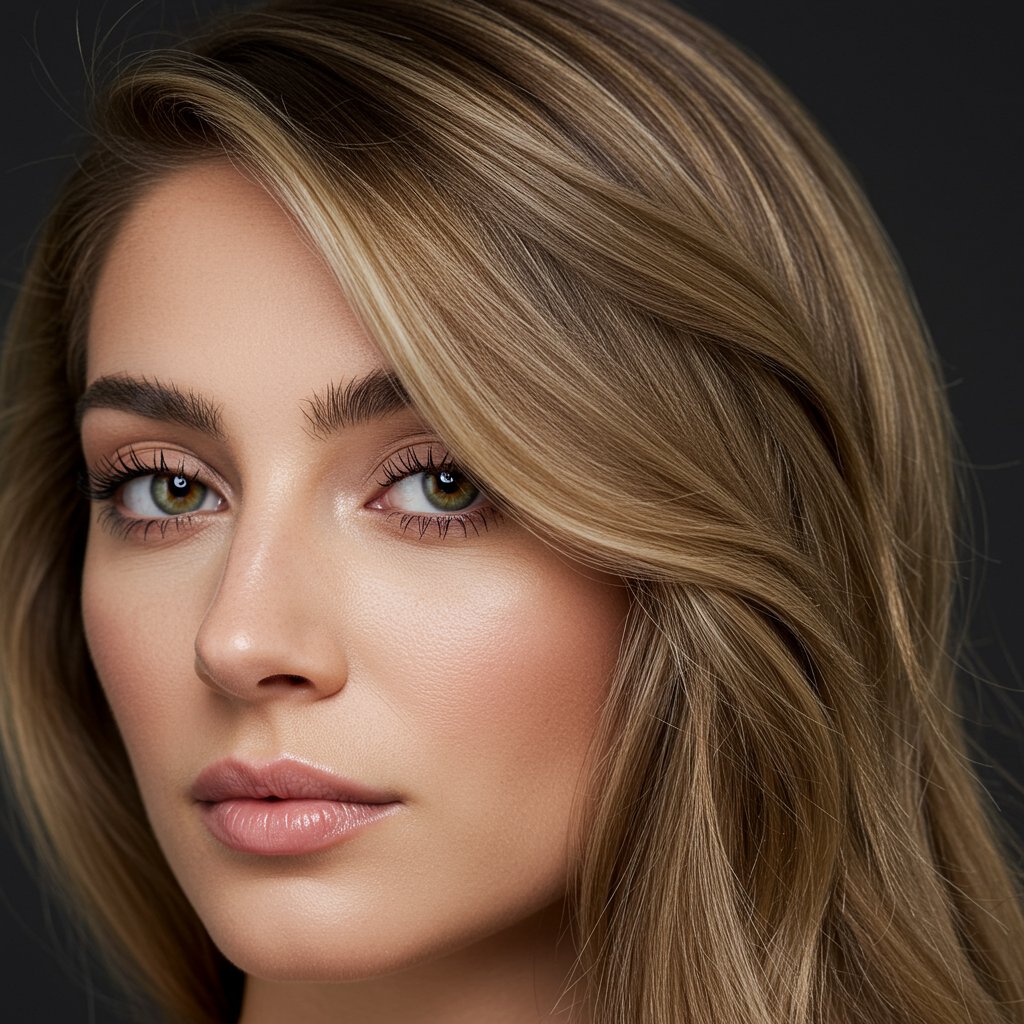
Are Babylights Right for You?
Babylights are the perfect option for those who want a minimal-change, maximum-impact result. They are ideal for individuals with fine hair, as the technique adds the illusion of fullness and texture without overwhelming the hair. They are also a fantastic way to gently blend away the first signs of gray hair or to transition from a heavier, full-foil highlight to something softer and more modern. While babylights require meticulous application and can be time-consuming, the result is a luminous, natural-looking color that appears to be entirely your own.
Foilyage: The Best of Both Worlds
What happens when you combine the artistic painting of balayage with the amplifying power of foils? You get foilyage, a hybrid technique that delivers the beautifully blended result of balayage with a brighter, more pronounced lift. In this method, the colorist hand-paints sections of hair just as they would for balayage, but then each painted section is wrapped in foil. The foil traps heat, allowing the lightener to process more effectively and achieve a higher level of brightness than open-air balayage can alone.
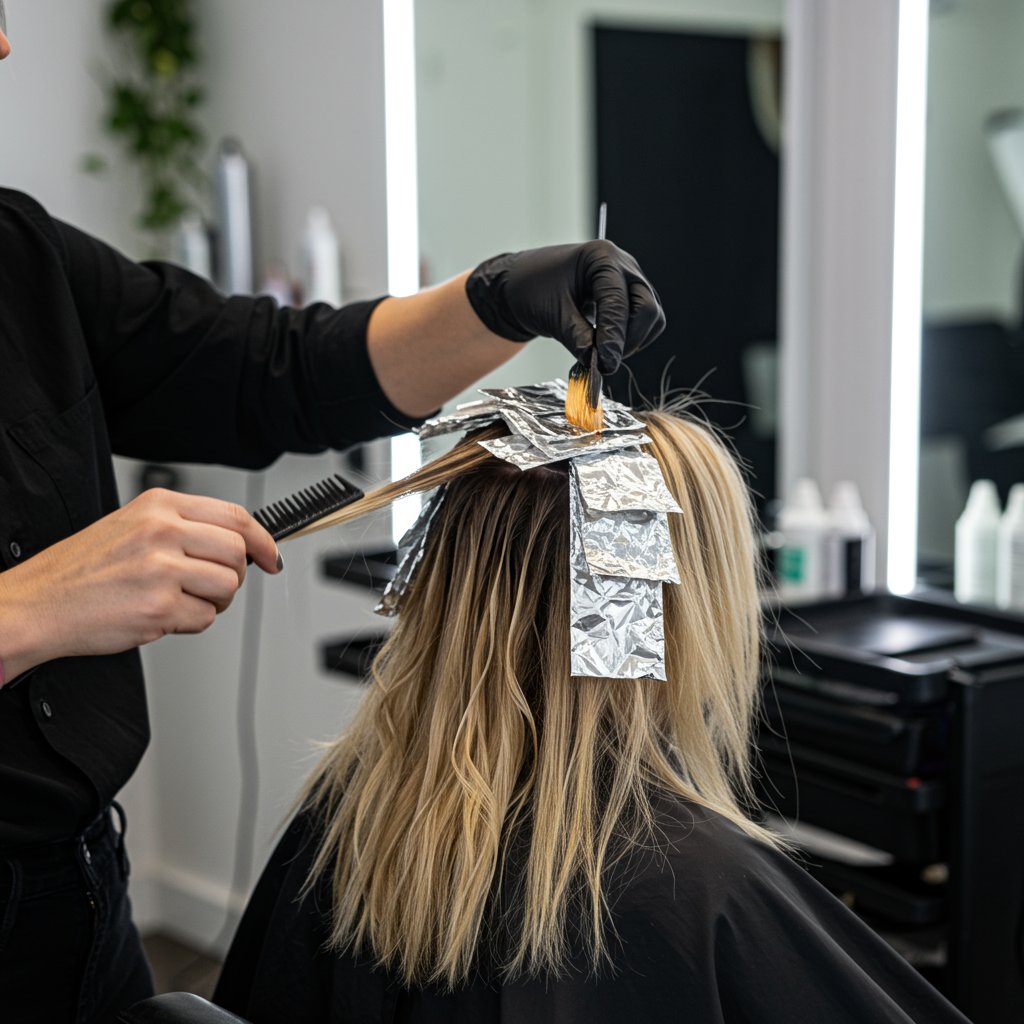
When to Opt for Foilyage
Foilyage is the ideal choice for those with naturally dark hair who desire a significant contrast and a noticeable sun-kissed effect. It's perfect for achieving those coveted caramel, honey, or sandy blonde tones on a dark brunette base without sacrificing the soft, graduated look at the root. It provides the best of both worlds: the bold, brilliant lift of traditional foils and the seamless, natural-looking grow-out of balayage. This makes it a popular choice for creating a high-impact look that still feels sophisticated and grows out gracefully.
Teasylights & Root Smudging: The Secret to a Seamless Grow-Out
Even with the most advanced application techniques, the secret to truly natural-looking highlights often lies in the finishing touches. Two of the most important finishing techniques are teasylights and root smudging. Teasylights involve gently backcombing (or 'teasing') a section of hair before applying lightener to the ends that remain. When the hair is combed out, the highlighted pieces are diffused and staggered, completely eliminating any possibility of a harsh line. This creates an incredibly soft, airbrushed transition from the natural base color.
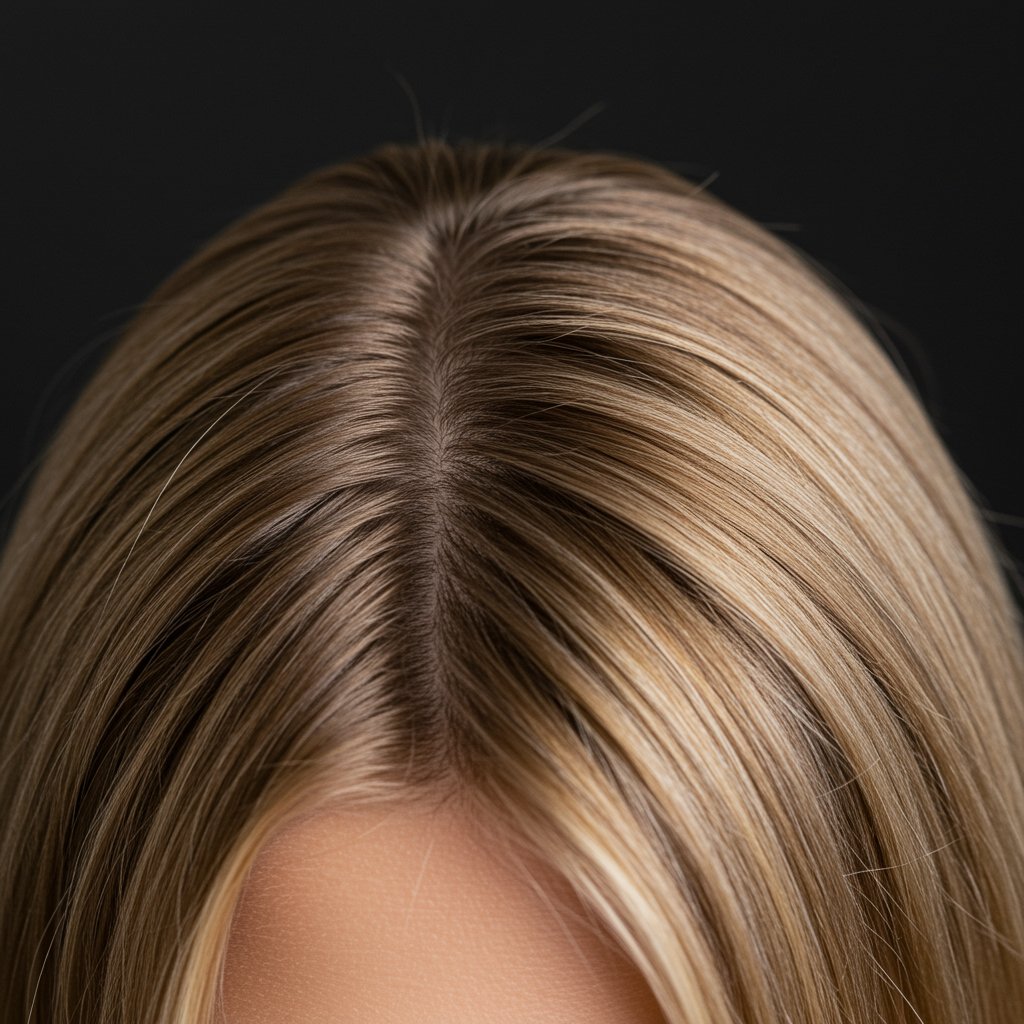
Root smudging, also known as a root melt or color melt, is a gloss or toner applied to the root area after highlights have been rinsed. This technique 'smudges' or 'blurs' the area where the natural hair color meets the highlights, creating a subtle shadow that further enhances the lived-in look. It ensures a flawless blend and is the key to an ultra-low-maintenance grow-out, as it softens the transition and allows your natural color to grow in beautifully without a noticeable line of demarcation. An experienced stylist will often combine these techniques to achieve the ultimate seamless hair color.
Choosing the Right Tone for Your Skin
Technique is only half the battle; the other half is selecting the perfect tone for your highlights. The most natural-looking results are achieved when the highlight shade complements your skin's undertones. A skilled colorist will analyze your skin, eye color, and natural hair color to determine whether you lean warm, cool, or neutral. This consultation is a critical step in the process.
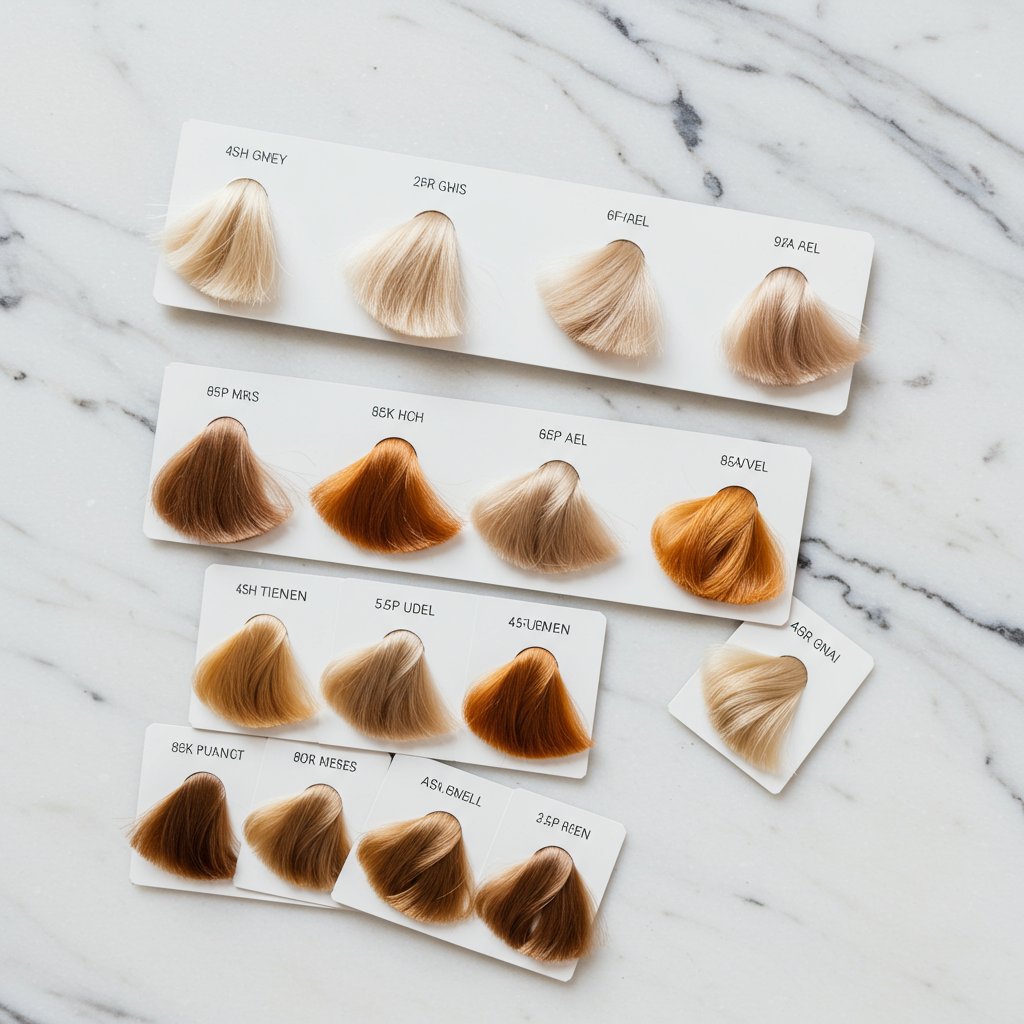
For those with warm undertones (skin that has hints of yellow, peach, or gold), shades like golden blonde, honey, caramel, and copper will be most flattering. These tones add warmth and radiance to the complexion. For individuals with cool undertones (skin with hints of pink, red, or blue), shades like ash blonde, beige, platinum, and cool-toned browns will neutralize redness and create a harmonious look. Choosing the correct tone is what elevates a good highlight service to a great one, ensuring your new color looks like it was made just for you.
Aftercare: How to Maintain Your Sun-Kissed Glow
Investing in professional, natural-looking highlights is just the first step. Proper aftercare is essential to keep your color vibrant, prevent brassiness, and maintain the health of your hair. Lightened hair is more porous and requires extra care to stay strong and shiny. The first rule is to use professional-quality, sulfate-free shampoos and conditioners specifically formulated for color-treated hair. These gentle formulas will cleanse your hair without stripping its color or natural oils.
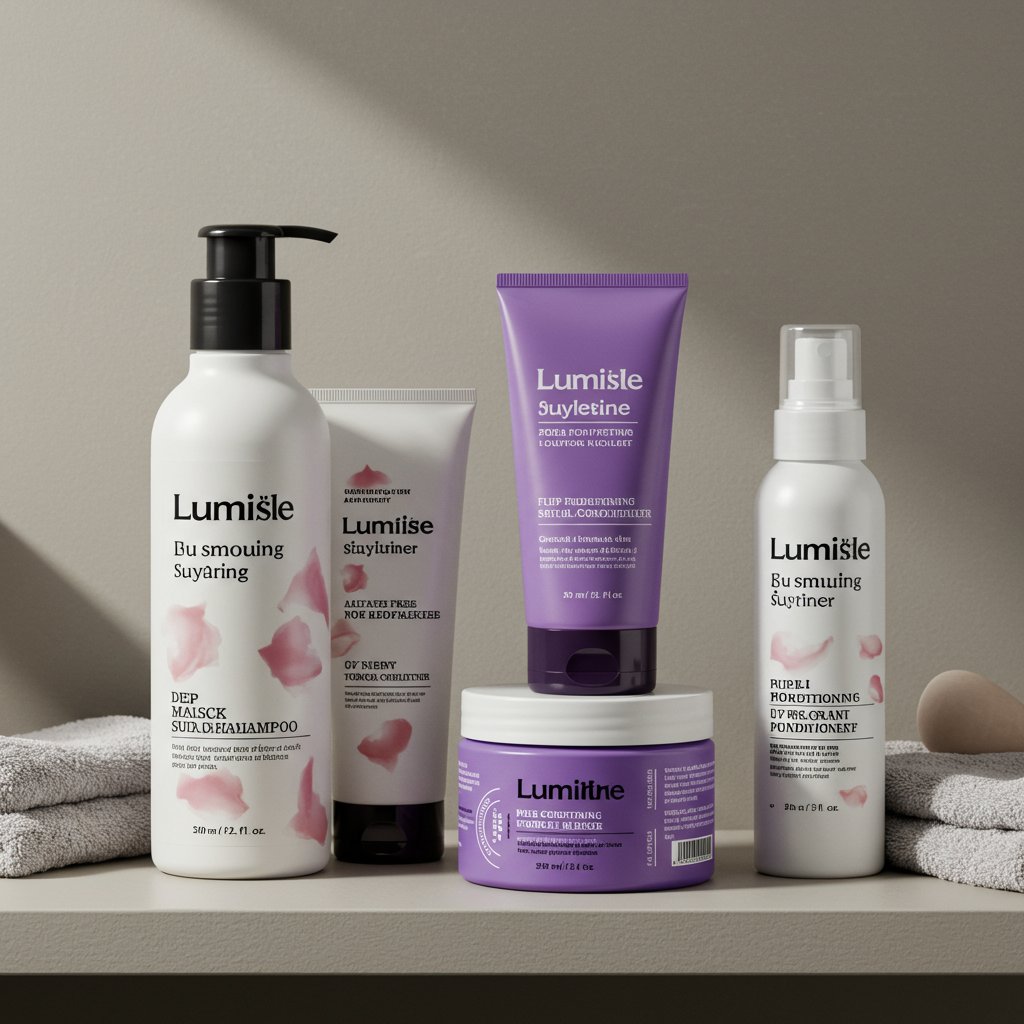
Incorporate a weekly deep conditioning treatment or hair mask into your routine to replenish moisture and repair any damage from the lightening process. To combat unwanted warm or brassy tones, especially in blonde highlights, use a purple or blue toning shampoo once every one or two weeks. Finally, always protect your hair from the elements. UV rays can cause color to fade and become brassy, so use a leave-in product with UV protection, and consider wearing a hat during prolonged sun exposure. Regular salon appointments for a gloss or toner between full highlight services can also refresh your color and keep it looking its best.
Frequently Asked Questions About Natural Highlights
How long do natural highlights last?
The longevity of techniques like balayage and foilyage is one of their biggest benefits. Because they grow out so softly, you can typically go 3-6 months between appointments. Babylights may require more frequent touch-ups, around 8-12 weeks, depending on how much contrast there is with your natural color.
Are natural-looking highlights damaging to hair?
Any chemical process can cause some degree of damage, but modern techniques are designed to be as gentle as possible. Stylists use high-quality lighteners with built-in bond-building technology. When performed by an experienced professional and followed by proper at-home care, damage can be minimized, keeping your hair healthy and strong.
Can I get natural-looking highlights on dark hair?
Absolutely! Techniques like balayage and foilyage are particularly stunning on dark hair. A skilled colorist can create beautiful caramel, toffee, or honey tones that add gorgeous dimension to a brunette base without looking unnatural. The key is to lift the hair to the correct level and tone it perfectly.
What's the difference between balayage and traditional highlights?
Traditional highlights use foils to saturate sections of hair from root to tip, often creating a more uniform, striped pattern. Balayage is a freehand painting technique applied to the surface of the hair, resulting in a more graduated, blended, and natural-looking effect with a softer grow-out.
How often do I need a toner or gloss?
It's recommended to book a toning or glossing service every 6-8 weeks, in between your main highlighting appointments. A gloss refreshes the tone of your highlights, adds incredible shine, and can help seal the hair cuticle, keeping your color vibrant and looking fresh from the salon.
What should I ask my stylist for to get a sun-kissed look?
Bring inspiration photos! Use terms like 'sun-kissed,' 'lived-in color,' 'seamless blend,' and 'soft grow-out.' Mention the specific techniques you've learned about, such as 'balayage' for a painted look or 'babylights' for subtle dimension. The best approach is to have a thorough consultation to discuss your goals and hair history.
The Art of Effortless Beauty
Achieving beautiful, natural-looking highlights is a collaborative art between you and a skilled hair colorist. By understanding the different techniques available—from the sweeping strokes of balayage to the delicate detail of babylights and the powerful fusion of foilyage—you can make an informed decision and communicate your vision effectively. The modern approach to hair color celebrates subtlety and personalization, creating a look that enhances your natural beauty and fits seamlessly into your lifestyle.
Remember that the key to a stunning, sun-kissed glow lies not just in the application but also in the customized tone and dedicated aftercare. When done correctly, these highlights offer a low-maintenance, high-impact style that looks effortlessly chic and grows out beautifully, proving that sometimes the most beautiful color is the one that looks like you were born with it.
